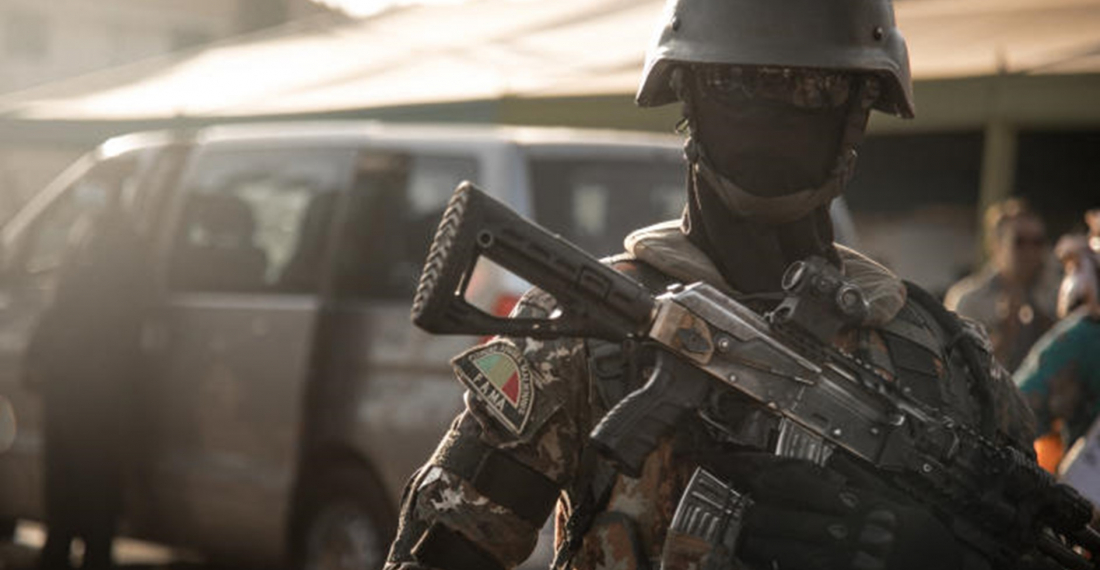In a statement published on Friday (April 1), the Malian army said that the operation carried between 23 and 31 March around Moura, a village in central Mali, killed 203 combatants, arrested 51 people, and seized large quantities of weapons.
During several days of blockade, the village of Moura was the scene of a campaign of terror worthy of one of the worst killings in recent Malian history. According to testimonies, three helicopters were mobilised on Sunday 27 March and machine-gunned suspected jihadist militants.
The soldiers then proceeded to separate the villagers into three groups: terrorists, suspected terrorists, and suspected collaborators. While the first group is executed on the spot, the others were handcuffed and interrogated.
According to several security sources, the soldiers who acted were white and spoke an unknown language, suggesting a presence of Russian militants belonging to the Kremlin-backed Wagner group, possibly with elements from the North Caucasus.
More than 1,000 soldiers from the Russian paramilitary company Wagner have been deployed in Mali since December 2021.
US State Department spokesman Ned Price said on Sunday, 3 April, that the number of people killed in Moura presented "extremely disturbing" accounts. Ned Price was also sceptical because of the discrepancy in the reports at his disposal. On the one hand, some reports point to the involvement of forces from the Kremlin-backed Wagner Group, while others point to the Malian Armed Forces (FAMA) having targeted elements of known extremist groups. Price therefore called on the Malian transitional authorities to grant “impartial investigators free, unfettered, and safe access to the area where these tragic events unfolded."
Officials at the Russian Embassy in Washington declined to comment immediately on reports of the Wagner Group's involvement.
Reports of dozens of deaths during the attack in Moura flooded social networks last week.
Yet, poor access to Mali’s conflict areas and a relative lack of independent information sources means that it is difficult to verify the army’s claimed death toll or the social media reports.
It is not the first time that Mali’s ill-equipped army is accused of committing abuses during the conflict. UN Secretary-General António Guterres recently warned the Security Council that Mali’s counterterrorism efforts had “disastrous consequences for the civilian population”.
The West African nation of about 21 million people has seen an uptick in violence in recent weeks as European troops scale back their operations.
On 17 February, France and its European partners announced that they would withdraw most of their troops from Mali by this summer. This comes in the wake of the recent political and security deterioration following successive coups in Mali. This withdrawal put an end to the French counter-terrorism mission called Barkhane, which includes Canada, and to the European mission named Takuba, comprising European special forces.
After fighting Islamic insurgents in Mali for almost ten years, France is now turning to another ally, Niger, as a base from where to conduct military operations in this region plagued by al-Qaida and Islamic State (IS) affiliated terrorist groups.
The UN said earlier this month that thousands of people fleeing fighting in Mali have arrived in Niger.







